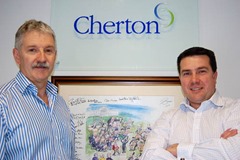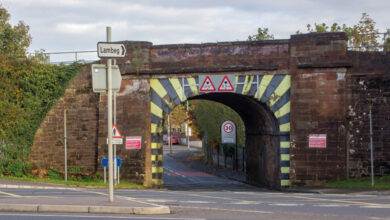Public consultation: a practitioner’s view
 Robin Guthrie shares his experience of best practice in consultation.
Robin Guthrie shares his experience of best practice in consultation.
Providing strategic advice and active support, to individuals, companies and organisations seeking to create or develop business and value within the local market. Cherton has a proven track record and the ability to help you deliver the most effective way of getting your plans and projects, from launch to delivery and we are recognised for our honesty, knowledge and integrity.
Cherton adds significant value to the potential for success of client business plans, its principals are recognised as trusted professionals in this field and success has been our measure. Professional advice will range across all key success areas such as local communities, customer groups, commerce, politics and governmental structures.
Cherton has wide experience in consulting stakeholders and communities on issues that can carry local impacts, whether perceived or actual. Engaging with communities, elected representatives and single-issue groups, to be successful, demands and deserves professional planning, delivery and reporting. This has up to now, been at the discretion of the project promoter but will, post the inception of the new councils and planning arrangements, become mandatory for all major projects.
It is important to understand what community consultation is and what it is not. One of the most common and damaging mistakes made in promoting major projects within stakeholder communities, is when a group of enthusiastic and well intentioned ‘experts’, assume they are bringing ‘good news’ and that they will be welcomed by their audience, when in fact the audience’s ‘perception’ may be totally the opposite.
Effective and professional stakeholder consultation can be the difference between ‘success’ and ‘failure’. The process must begin well before the project is formally announced to the public and the consultation plan must integrate local knowledge with the project promoters’ expert experience and the experience and advice of the ‘communicators’.
Consultation is not about ‘telling’, it’s about ‘listening’. Promoters are probably trying to introduce ‘change’ into the audience’s environment, that audience probably knows that environment better than the promoters.
Equally, you know the project and its impacts better than the audience. Throwing a metaphorical ‘grenade’ into the middle of a crowd is unlikely to produce the results you desire. It’s key to recognise the importance of ‘listening’ to that audience, to recognise their concerns and to communicate your messages clearly and simply. Having listened to stakeholders’ concerns, they cannot simply be dismissed; they must be considered and where practical and feasible given due account in project development.
Statutory authorities will expect to see a professional approach to and report on the consultation process and importantly to see that genuine concerns have indeed been considered and addressed. The key things to bear in mind are:
• Make sure the community is involved;
• Identify and manage your stakeholders;
• Consult widely;
• Develop a sense of common purpose; and
• Have a plan but be prepared to change it.
Effective stakeholder communication has always been a key part of timely and successful project delivery. Cherton has over many years built up its experience of the key statutory processes and a wide knowledge of key stakeholders at local and regional levels.
This, combined with the knowledge of what works and doesn’t work in community consultation, I believe, allows us to offer effective strategic support to teams charged with the delivery of major projects, in the new planning environment, where community consultation, its planning, delivery, consideration and reporting will become a mandatory requirement.
 Contact us by email karen.hughes@cherton.co.uk
Contact us by email karen.hughes@cherton.co.uk
Or call us on 028 9076 9966
www.cherton.co.uk





